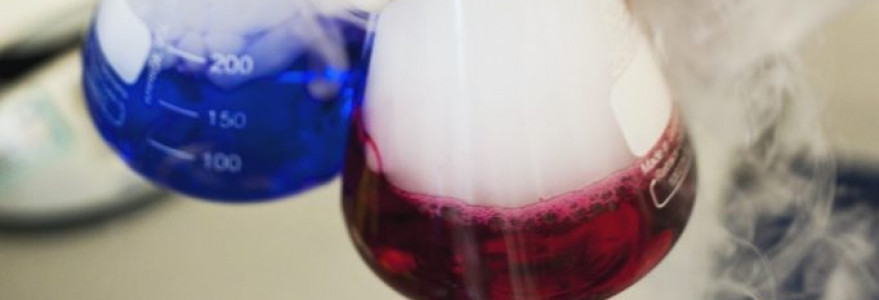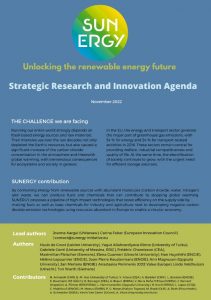The Solar-driven Chemistry network has settled the competition for projects on how to use solar energy. One of the winners is “SUNCOCAT project: Rational design of efficient energy and charge transfer in biophotoelectrodes for direct conversion of CO2 into fuel”, led by Professor Joanna Kargul from the UW Centre of New Technologies.
“The SUNCOCAT project aims to significantly improve conversion efficiency of carbon dioxide into other chemicals using solar energy. Rational design of the hybrid biophotocatalytic assemblies will be used during the process. Their novel nanoscale architecture, supported by a graphen, DNA origami technique and plasmonic enhancement of absorption and fluorescence will ensure an adequate electron flow without feedback or short circuit,” Professor Joanna Kargul says.
As the UW scientist explains, the results of this research are expected to enable a smooth transition from advanced nanoscale systems to portable and efficient solar fuel production systems. “This would be of high importance for the decentralised and direct conversion of solar energy into renewable fuels and other chemicals of value to various economic sectors,” Prof. Kargul adds.
“The SUNCOCAT project aligns perfectly with the ambitious research and development goals of the pan-European SUNERGY initiative, as outlined in the Strategic Research and Development Plan for Renewable Fuels and Chemicals,” Prof. Kargul says about both initiatives: the research project and the strategic document she co-authored.
The “SUNCOCAT project: Rational design of efficient energy and charge transfer in biophotoelectrodes for direct conversion of CO2 into fuel” will be conducted by a team of French, German, Polish and Turkish researchers. It integrates methodologies from different scientific disciplines: electrochemical research, electron transfer modelling by quantum/molecular mechanics, as well as genetic and biophysical methods. The project is scheduled to start in early 2023.
Solar-driven Chemistry is a network of European research-funding organisations, established in 2008 on the initiative of the German Deutsche Forschungsgemeinschaft (DFG). It organises international calls for research proposals devoted to the photochemical processes associated with sunlight. The network brings together research-funding organisations from Finland (AKA), France (ANR), Germany (DFG), Poland (NCN), Switzerland (SNSF) and Turkey (TÜBİTAK).
Research and development of renewable energies and materials in Europe
Prof. Joanna Kargul is also a co-author of the Strategic Research and Innovation Agenda on Solar Fuels and Chemicals – a living document which will be further developed with the SUNERGY community into a full solar fuels and chemicals technological roadmap.
“Societies are currently facing the challenge of replacing fossil fuels and chemicals derived from the conversion of fossils with renewable feedstocks with a zero, or better still, negative carbon footprint. Various research studies are currently underway. The share of renewable energy in the form of solar and wind power is growing rapidly and will soon reach the desired level. Together with the full electrification of society and industry, this is one of the main pathways towards carbon neutrality,” the UW researcher explains.
Professor Kargul points out that the direct use of electricity can be supported by means of fuels and chemicals produced from renewable energy sources. This would be crucial in case of neutralisation of the carbon footprint by those industries for which complete electrification is rarely an option.
“For instance hydrogen, carbon-based chemicals and ammonia can be derived from biomass conversion. However, the efficiency of this process is very limited and insufficient to meet global energy needs,” the researcher explains. “Biofuels gained through biomass conversion can be complemented with renewable fuels or substances derived directly from carbon dioxide. The latter thus ceases to be a problem for the environment and becomes a valuable resource,” Prof. Kargul says.
SUNERGY is an open community advocating for solar fuels and chemicals as the new paradigm for a climate-neutral Europe in 2050. The community consists of a wide-range group of experts from industry, academia and society. SUNERGY aims at becoming a large European Research and Innovation initiative working towards the conversion and storage of renewable energy into fossil-free fuels and chemicals.
The Strategic Research and Innovation Agenda on Solar Fuels and Chemicals is available on the Solar Initiative website.




